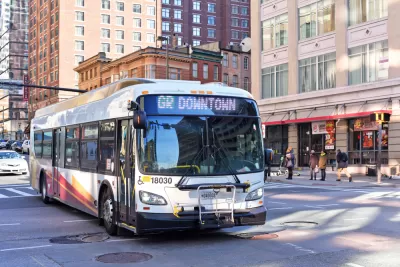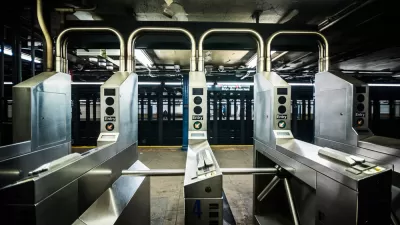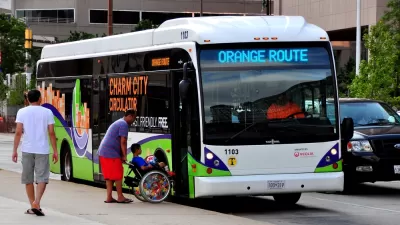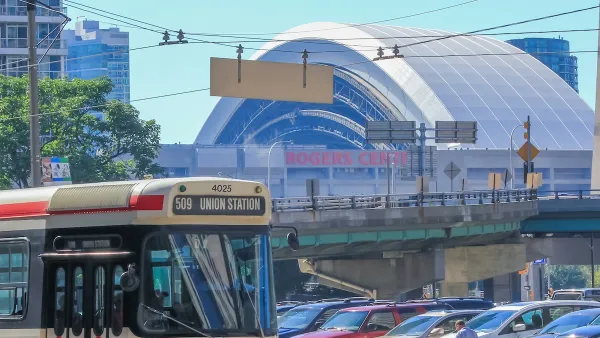If signed by the governor, the act will halt a scheduled fare increase previously tied to inflation.

New legislation passed by the Maryland General Assembly would prevent a scheduled fare increase for riders on the Maryland Transit Administration (MTA) system. Alex Holt describes the law, which heads to Governor Wes Moore’s desk, in Greater Greater Washington.
The Fair Fares Act, passed by the General Assembly on April 5, “uncouples MTA fares from the requirement that they increase with inflation, as measured by the Consumer Price Index” and “gives the MTA the authority to alter fares, including raising them, as it sees fit — albeit with some conditions, namely first giving public notice and holding a public hearing before making any fare changes.”
Del. Mark Edelson (D-Baltimore City), who introduced the House bill, said stopping the fare increases raised equity concerns for the majority of MTA riders who depend on transit. “[F]or us to increase fares on these riders, at a time when inflation is already significantly ahead of wage increases, is going to hit them in a terrible way and it’s completely inconsistent with our values of helping lift folks up out of poverty and creating a more reliable transit system that serves everybody.”
Holt explains, “Even if it isn’t quite as dramatic as DC’s fare-free transit proposal, the bill at least starts the conversation about what it might take to get closer to that. It also fuels the discussion about how to fund public transit going forward, and about allowing MTA to follow national trends by experimenting with more flexible pricing arrangements based on factors like income, like the program the Massachusetts Bay Transportation Authority just adopted.”
FULL STORY: Fair Fares Act expected to give MTA riders relief

Planetizen Federal Action Tracker
A weekly monitor of how Trump’s orders and actions are impacting planners and planning in America.

Restaurant Patios Were a Pandemic Win — Why Were They so Hard to Keep?
Social distancing requirements and changes in travel patterns prompted cities to pilot new uses for street and sidewalk space. Then it got complicated.

Map: Where Senate Republicans Want to Sell Your Public Lands
For public land advocates, the Senate Republicans’ proposal to sell millions of acres of public land in the West is “the biggest fight of their careers.”

Maui's Vacation Rental Debate Turns Ugly
Verbal attacks, misinformation campaigns and fistfights plague a high-stakes debate to convert thousands of vacation rentals into long-term housing.

San Francisco Suspends Traffic Calming Amidst Record Deaths
Citing “a challenging fiscal landscape,” the city will cease the program on the heels of 42 traffic deaths, including 24 pedestrians.

California Homeless Arrests, Citations Spike After Ruling
An investigation reveals that anti-homeless actions increased up to 500% after Grants Pass v. Johnson — even in cities claiming no policy change.
Urban Design for Planners 1: Software Tools
This six-course series explores essential urban design concepts using open source software and equips planners with the tools they need to participate fully in the urban design process.
Planning for Universal Design
Learn the tools for implementing Universal Design in planning regulations.
Heyer Gruel & Associates PA
JM Goldson LLC
Custer County Colorado
City of Camden Redevelopment Agency
City of Astoria
Transportation Research & Education Center (TREC) at Portland State University
Camden Redevelopment Agency
City of Claremont
Municipality of Princeton (NJ)





























